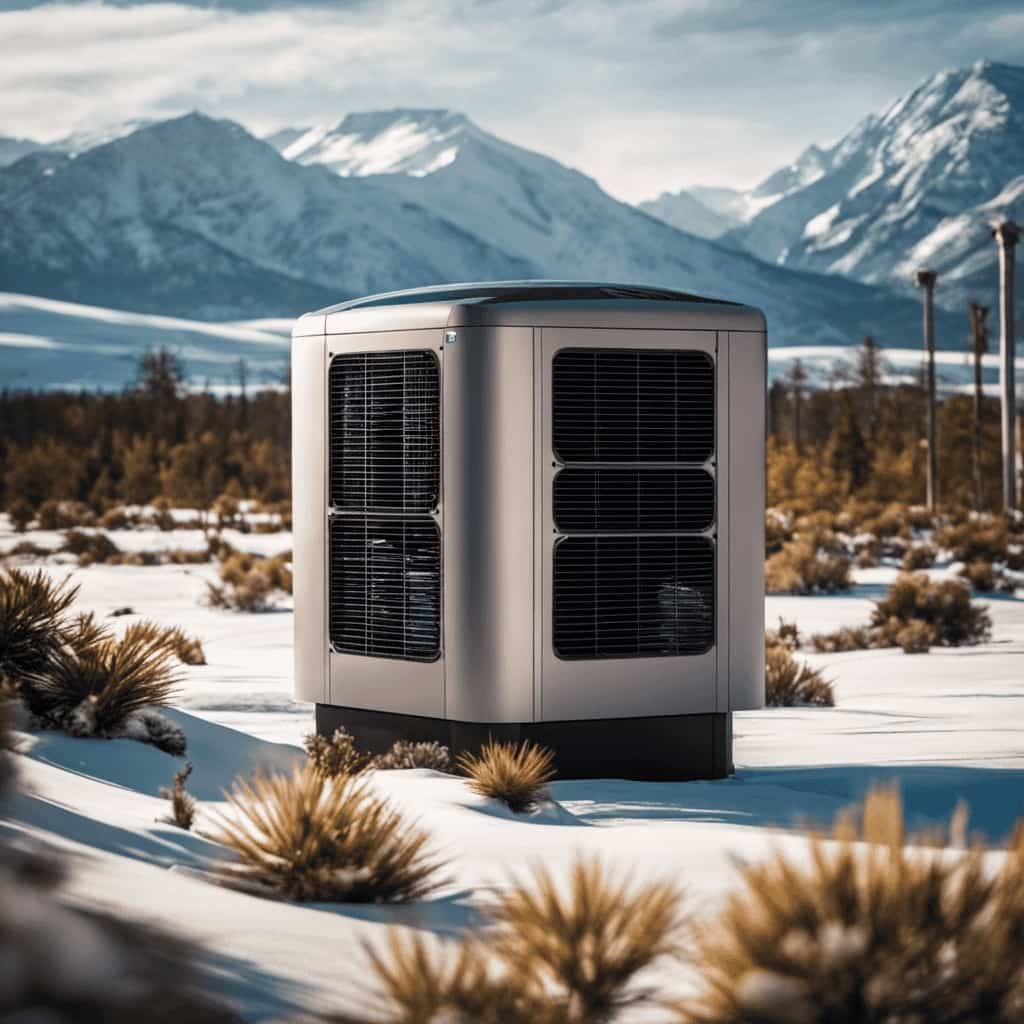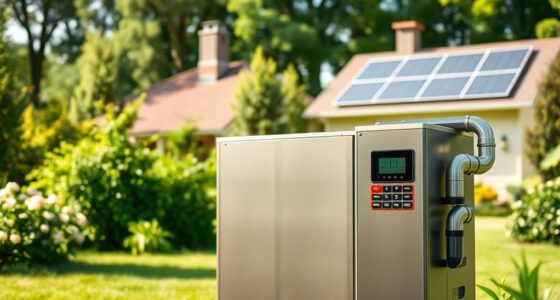We have exciting news to share with you – new high-end home heat pumps have been revealed, and they can help you save an incredible 60% on your energy costs!
That’s right, these innovative devices are designed to efficiently heat and cool your home while reducing your carbon footprint.
In this article, we’ll explore how heat pumps work, the benefits they offer, and how to choose the right one for your home.
Get ready to discover the future of energy-efficient heating and cooling!

Key Takeaways
- Heat pumps transfer heat from one place to another using a refrigerant, providing both heating and cooling capabilities.
- Heat pumps offer a cost-effective heating solution, saving homeowners up to 60% on their energy bills.
- Heat pumps are environmentally friendly, using renewable energy sources and producing lower greenhouse gas emissions.
- Proper installation and regular maintenance are crucial for optimal performance and energy savings of heat pumps.
How Heat Pumps Work
We’ll explain how heat pumps work to efficiently heat and cool homes while saving energy.
Heat pumps are highly efficient heating and cooling systems that transfer heat from one place to another. They work by using a refrigerant that circulates between an outdoor unit and an indoor unit.
During the heating mode, the outdoor unit extracts heat from the outdoor air and transfers it to the indoor unit, which then distributes the heat throughout the home.
In the cooling mode, the process is reversed, with the indoor unit extracting heat from the indoor air and transferring it outdoors.
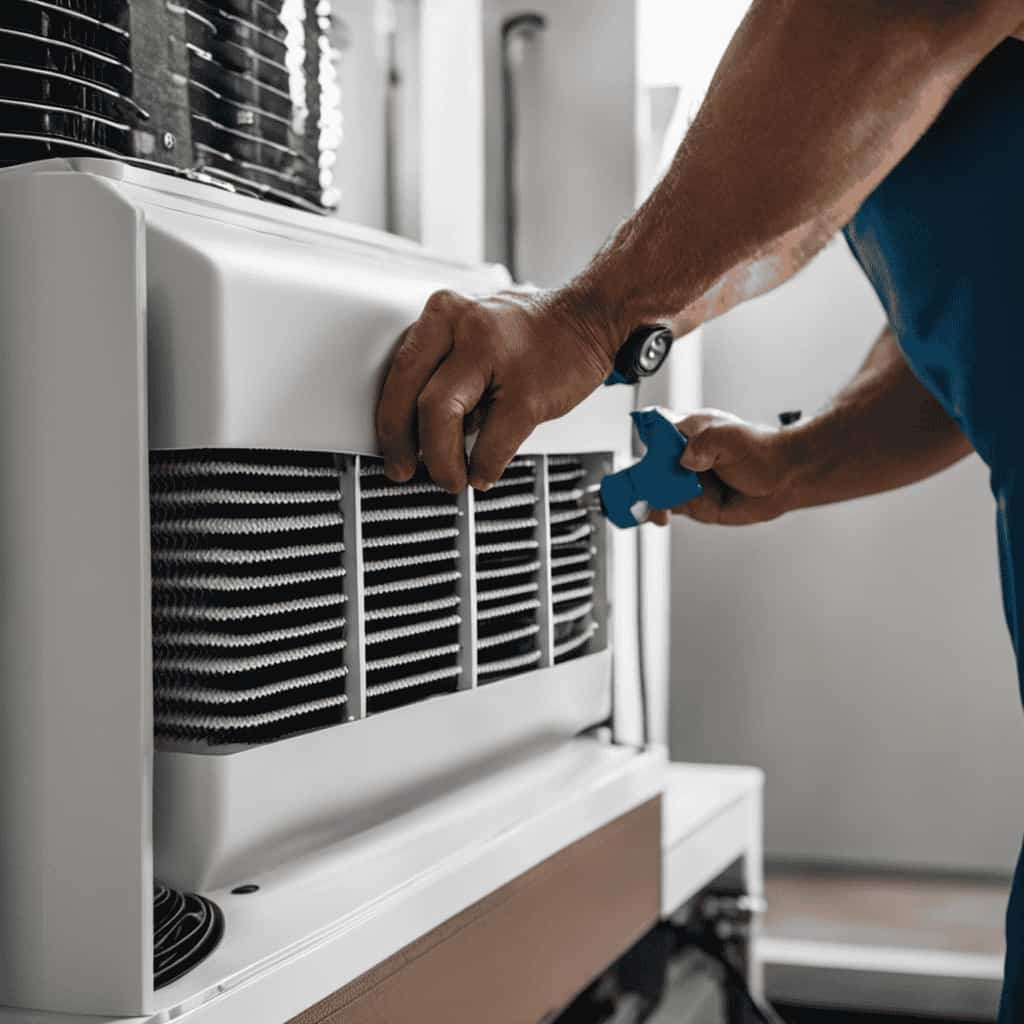
One advantage of heat pumps is their ability to provide both heating and cooling, eliminating the need for separate systems. However, one disadvantage is that they may not be as effective in extremely cold climates.
Despite this, heat pumps offer significant energy savings and are a great option for homeowners looking to reduce their energy consumption.
Benefits of Heat Pumps
When it comes to the benefits of heat pumps, there are two key points to consider.
Firstly, heat pumps offer a cost-effective heating solution, allowing homeowners to save on their energy bills.
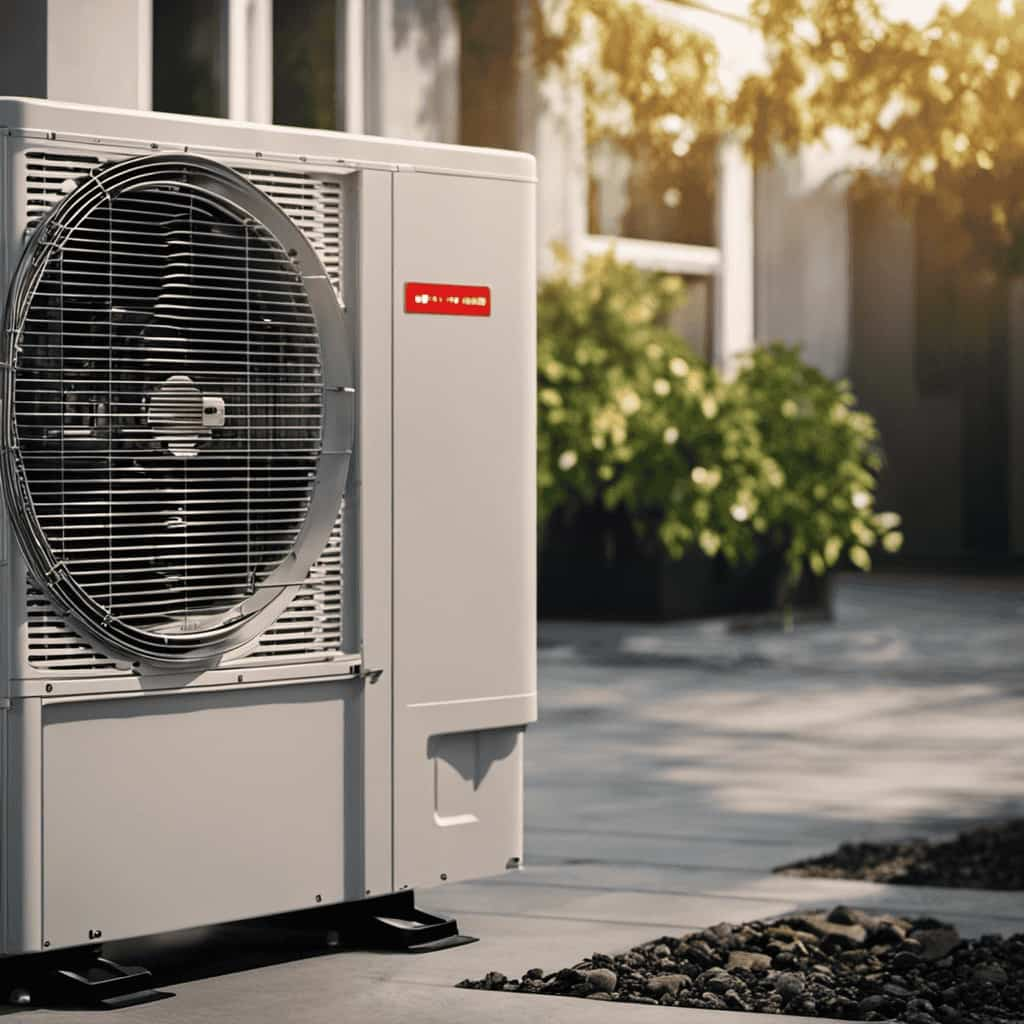
Secondly, heat pumps are an environmentally friendly option, as they use renewable energy sources and produce lower greenhouse gas emissions compared to traditional heating systems.
These advantages make heat pumps a smart choice for both our wallets and the planet.
Cost-Effective Heating Solution
Heat pumps offer a significant reduction in heating costs, making them a highly cost-effective solution for homeowners. These energy efficient options can result in long term savings, benefiting both the environment and your wallet.
A heat pump operates by transferring heat from one area to another, rather than generating heat itself. This means that it requires less energy to produce the same amount of heat compared to traditional heating systems. According to the U.S. Department of Energy, heat pumps can save homeowners up to 60% on their heating bills.

Furthermore, heat pumps are known for their durability and longevity, with an average lifespan of 15-20 years. This means that investing in a heat pump not only saves you money on your heating bills, but also reduces the need for frequent replacements, providing even more long term savings.
Environmental Friendly Heating Option
We often overlook the environmental benefits of heat pumps, which contribute to a more sustainable heating option for our homes. Heat pumps are energy-saving technologies that utilize the natural heat from the air or ground to warm our living spaces.
Here are three key benefits of heat pumps:
-
Energy Efficiency: Heat pumps are highly efficient, converting every unit of electricity into multiple units of heat energy. Compared to traditional heating systems, such as gas furnaces, heat pumps can save up to 60% of energy consumption, reducing both our carbon footprint and utility bills.
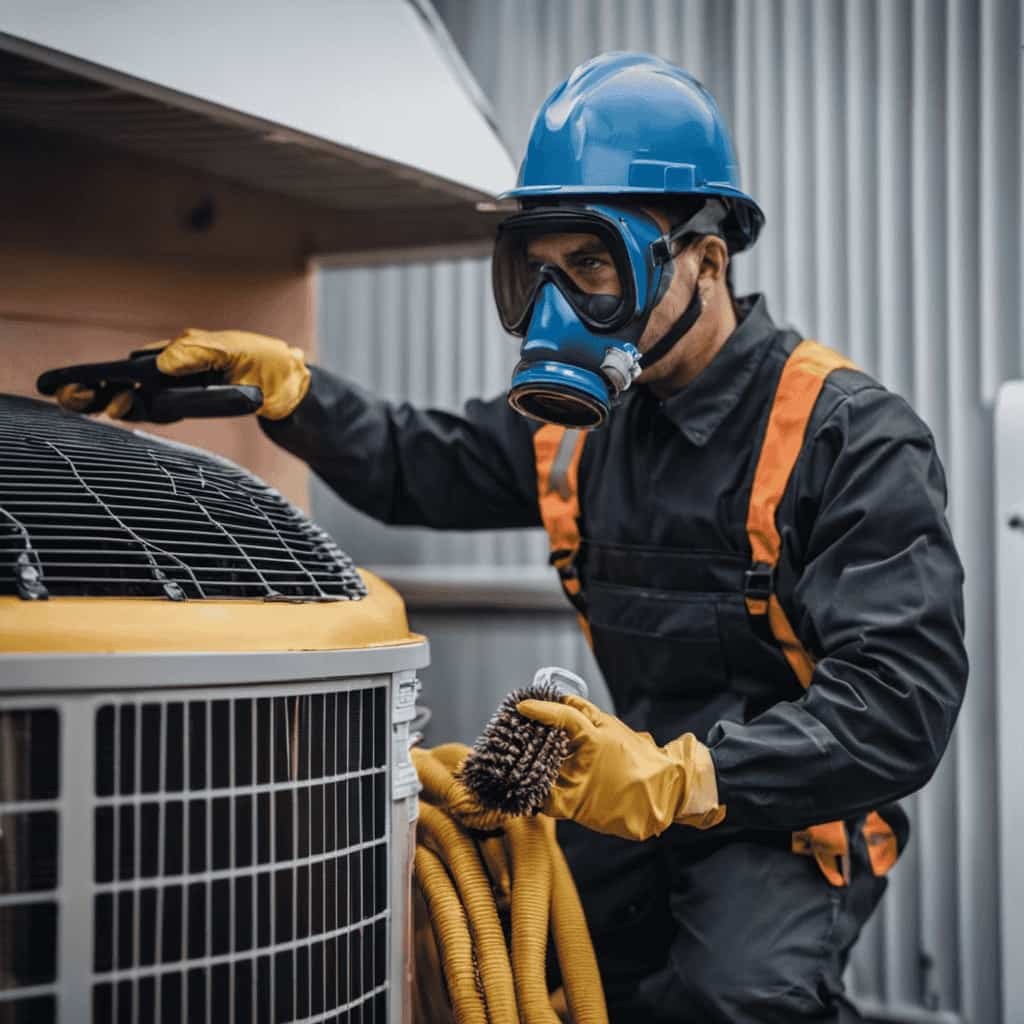
-
Renewable Energy Source: By harnessing the heat from the air or ground, heat pumps rely on renewable energy sources rather than depleting fossil fuels. This reduces our dependence on non-renewable resources and helps combat climate change.
-
Reduced Emissions: Heat pumps produce significantly fewer greenhouse gas emissions compared to conventional heating systems. By choosing heat pumps as our heating solution, we contribute to cleaner air and a healthier environment.
Types of Heat Pumps
Our article explores several different types of heat pumps that can significantly reduce energy consumption in homes. Heat pumps are an efficient and environmentally friendly heating option that can provide both heating and cooling capabilities. There are three main types of heat pumps: air source, ground source, and water source. Air source heat pumps extract heat from the outside air and transfer it into the home, while ground source heat pumps extract heat from the ground. Water source heat pumps, on the other hand, extract heat from a water source such as a lake or pond. Each type of heat pump has its own advantages and considerations, and proper heat pump installation and maintenance are crucial for optimal performance and energy savings. See the table below for a comparison of the different types of heat pumps.
| Heat Pump Type | Efficiency | Installation Cost | Maintenance Requirements |
|---|---|---|---|
| Air Source | High | Low | Moderate |
| Ground Source | Very High | High | Low |
| Water Source | High | Moderate | Moderate |
Choosing the Right Heat Pump for Your Home
To ensure maximum energy efficiency and cost savings, it’s essential for homeowners to select the right heat pump for their home. With so many options available, it can be overwhelming to make a decision. However, by considering a few key factors, you can choose the heat pump that best suits your needs.
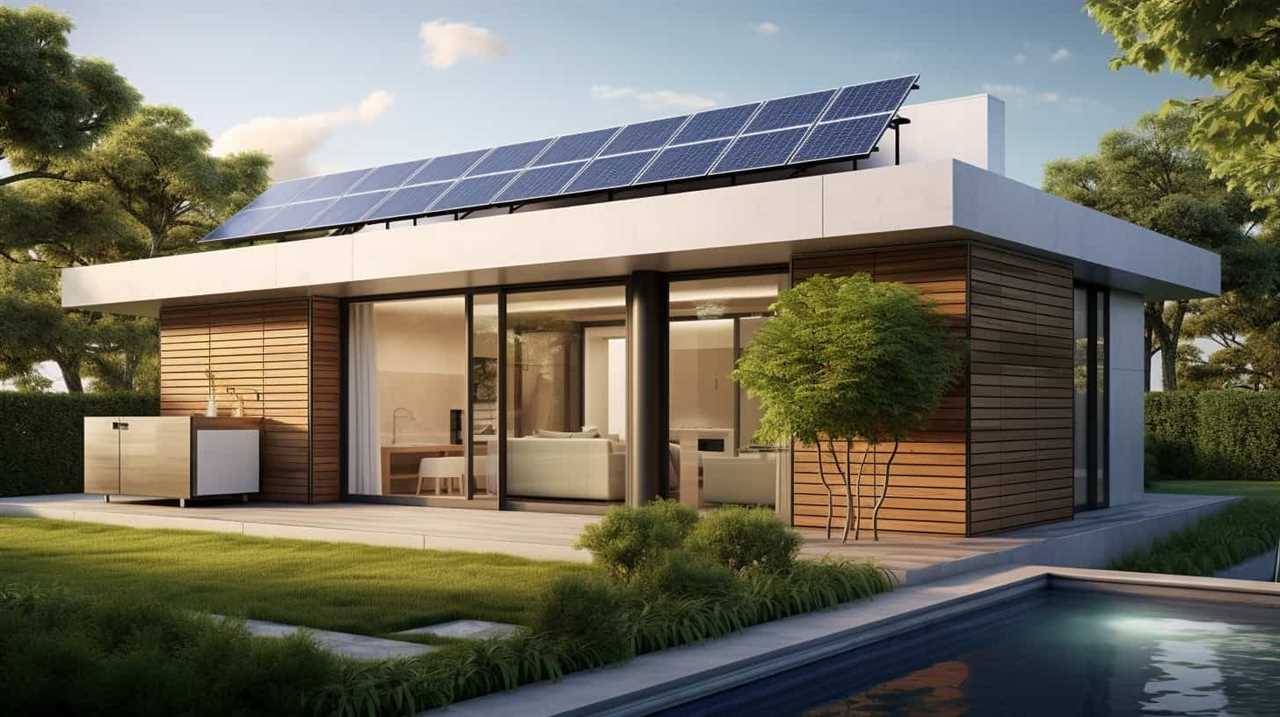
Here are some heat pump installation tips and energy saving strategies to help guide your decision-making process:
-
Size: Ensure that the heat pump you choose is the right size for your home. A unit that’s too small may struggle to heat or cool your space effectively, while one that’s too large may waste energy.
-
Efficiency: Look for heat pumps with high Energy Efficiency Ratio (EER) and Seasonal Energy Efficiency Ratio (SEER) ratings. These ratings indicate the unit’s energy efficiency and can help you save on energy costs.
-
Climate: Consider the climate in your area when selecting a heat pump. Heat pumps work best in moderate climates, so if you live in an area with extreme temperatures, you may need additional heating or cooling sources.

Installation Process of Heat Pumps
During the installation process of heat pumps, it’s important to follow the manufacturer’s instructions and hire a professional technician for optimal performance and efficiency.
To ensure a successful installation, here are some heat pump installation tips to keep in mind.
First, make sure the unit is placed in a location with sufficient airflow and away from obstructions.
Second, properly size the heat pump to match the heating and cooling needs of your home. Oversized or undersized units can lead to inefficiencies and increased energy consumption.
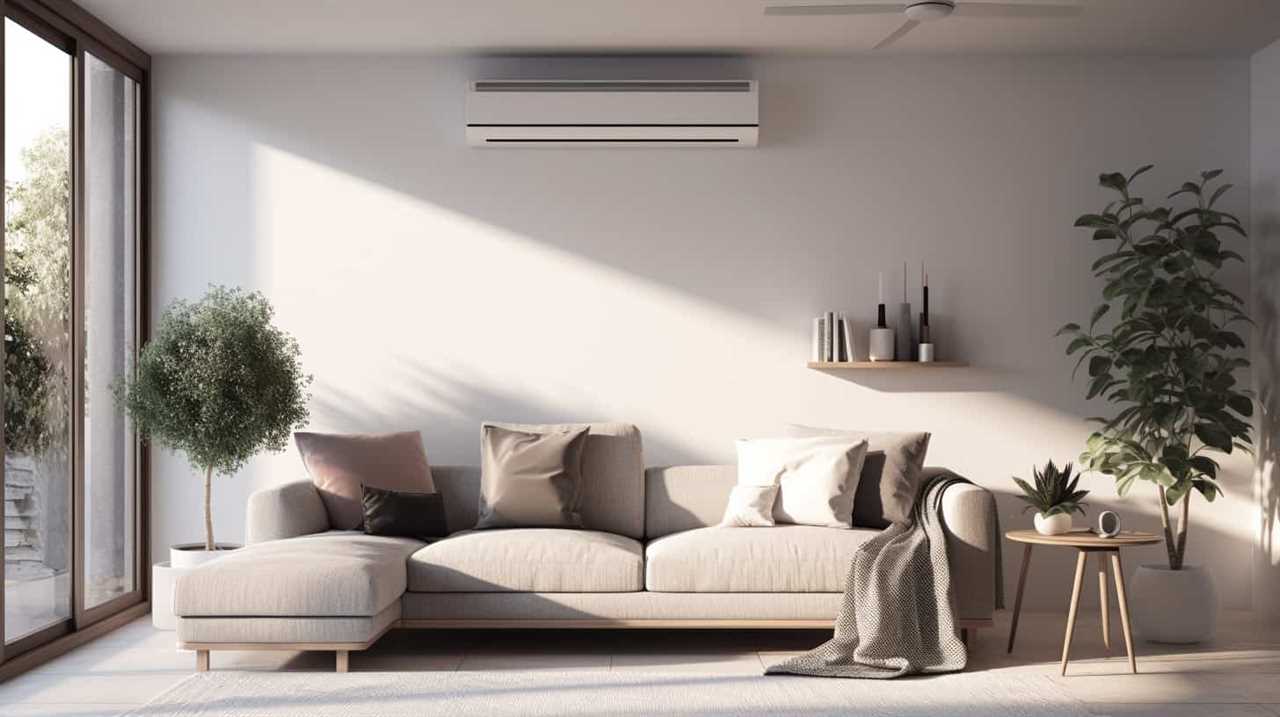
Additionally, ensure that the refrigerant lines are properly insulated to prevent heat loss or gain.
Common installation mistakes include improper refrigerant charging, poor ductwork design, and incorrect electrical connections.
By avoiding these mistakes and following proper installation procedures, you can maximize the performance and energy efficiency of your heat pump.
With the installation complete, let’s now move on to discussing the energy efficiency ratings of heat pumps.
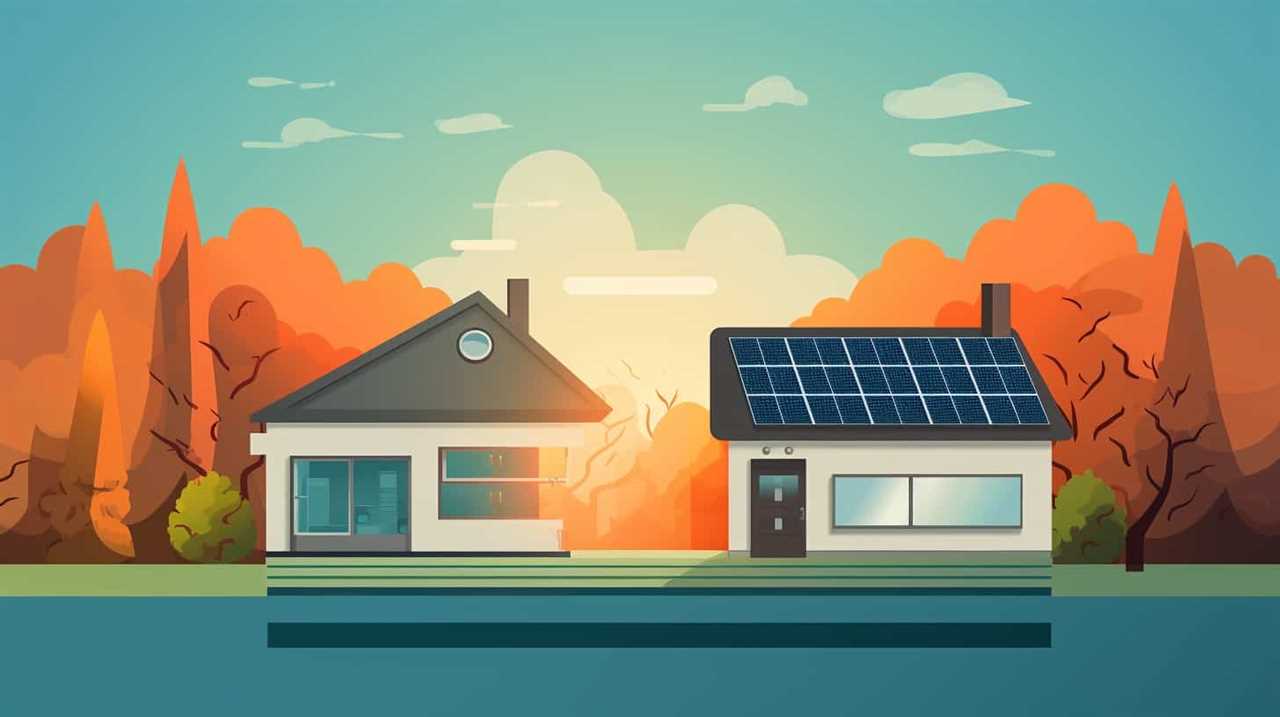
Energy Efficiency Ratings of Heat Pumps
We can evaluate the energy efficiency of heat pumps by looking at their SEER (Seasonal Energy Efficiency Ratio) and HSPF (Heating Seasonal Performance Factor) ratings. The SEER rating measures the cooling efficiency of the heat pump, while the HSPF rating measures its heating efficiency.
Here are three important factors to consider when looking for an energy-efficient heat pump:
-
SEER Rating: Look for a heat pump with a high SEER rating, as this indicates better energy efficiency and lower cooling costs.
-
HSPF Rating: A higher HSPF rating means better heating efficiency and lower heating costs. Look for heat pumps with higher HSPF ratings.
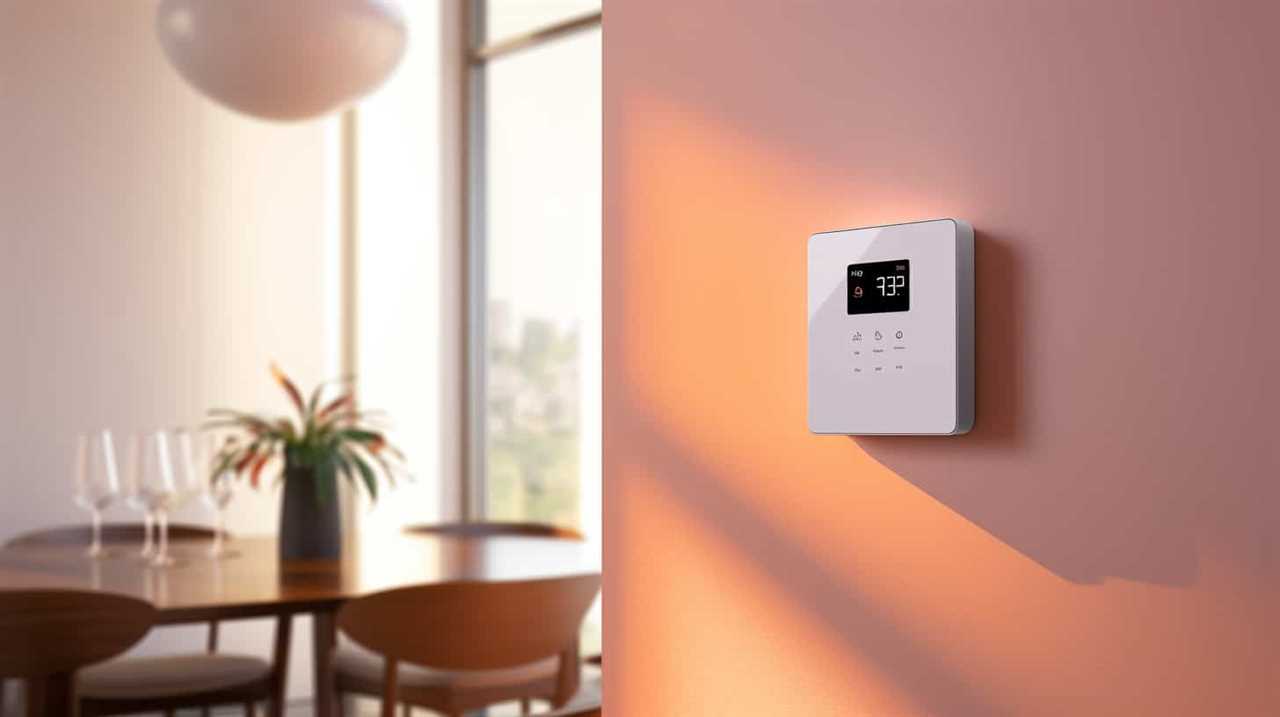
-
ENERGY STAR Certification: Choose a heat pump that’s ENERGY STAR certified. These models meet strict energy efficiency guidelines and can help you save on energy costs.
Maintenance Tips for Heat Pumps
Regular maintenance is essential for keeping heat pumps operating efficiently and extending their lifespan. By following a few simple maintenance tips, homeowners can ensure that their heat pumps continue to provide optimal performance and energy savings. Here are some key steps to consider:
-
Regular filter cleaning: Dirty filters can restrict airflow, reducing the heat pump’s efficiency. Clean or replace filters every 1-3 months, depending on usage.
-
Outdoor unit cleaning: Keep the outdoor unit free from debris, such as leaves and grass. This allows for proper airflow and prevents damage to the unit.

-
Annual professional inspection: Schedule an annual maintenance checkup with a qualified technician. They will inspect and clean the entire system, ensuring it operates at peak performance.
By following these maintenance tips, homeowners can troubleshoot potential issues and prevent costly repairs. Table 1 provides a summary of these maintenance tasks:
| Maintenance Task | Frequency |
|---|---|
| Filter cleaning | 1-3 months |
| Outdoor unit cleaning | As needed |
| Annual professional inspection | Once a year |
Regular maintenance is key to keeping your heat pump running smoothly and efficiently. It not only saves energy but also prolongs the lifespan of your system, ultimately saving you money in the long run.
Cost Savings With Heat Pumps
When it comes to cost savings with heat pumps, there are a few key points to consider.

First and foremost, heat pumps are highly efficient heating solutions that can help lower energy consumption. This means that homeowners can expect to see significant savings on their energy bills over time.
With their ability to transfer heat rather than generate it, heat pumps offer a cost-effective alternative to traditional heating systems.
Efficient Heating Solutions
Heat pumps offer significant cost savings through efficient heating solutions, reducing energy consumption by up to 60%. By utilizing efficient heating methods, heat pumps provide eco-friendly heating options that not only benefit the environment but also save homeowners money on their energy bills.
Here are three key advantages of efficient heating solutions:
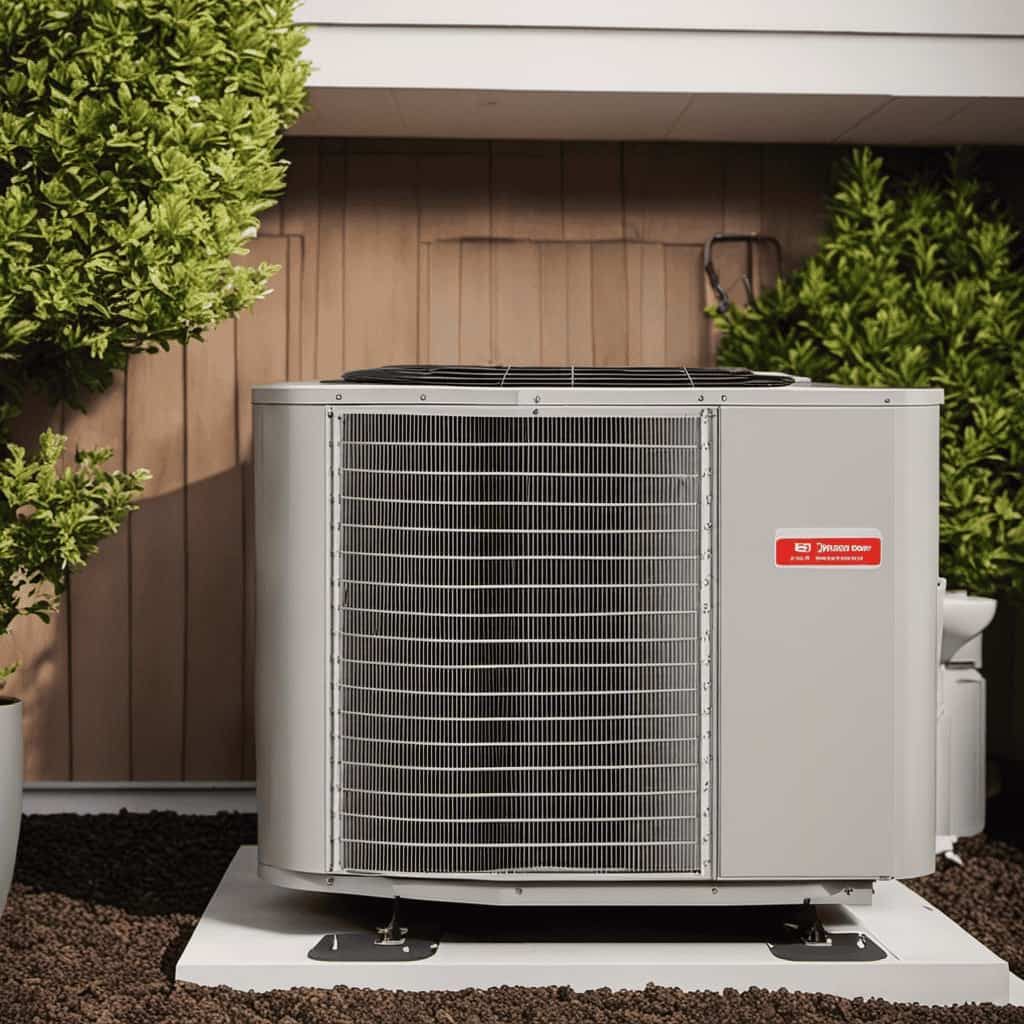
-
Energy Efficiency: Heat pumps are designed to transfer heat from one place to another, rather than generating heat from scratch. This process requires significantly less energy compared to traditional heating systems, resulting in reduced energy consumption and cost savings.
-
Renewable Energy Source: Heat pumps can utilize renewable energy sources such as geothermal energy or air source heat, which are sustainable and eco-friendly alternatives to fossil fuels. By harnessing these renewable energy sources, heat pumps contribute to a greener and more sustainable future.
-
Versatility: Heat pumps can provide both heating and cooling functionalities, making them versatile solutions for year-round comfort. By using the same system for both heating and cooling, homeowners can save on installation costs and reduce their environmental impact.
With their energy efficiency, renewable energy sources, and versatility, heat pumps offer efficient heating solutions that help homeowners save money while contributing to a more sustainable future.

Lower Energy Consumption
By using efficient heat pumps, we can significantly lower our energy consumption and enjoy cost savings. Heat pumps are a great way to reduce energy usage in our homes, and there are several energy-saving tips that can help us achieve even greater reductions. The following table provides an overview of effective strategies for reducing energy consumption:
| Energy Saving Tips | Description |
|---|---|
| Proper insulation | Insulate our homes to prevent heat loss |
| Programmable thermostats | Set temperature schedules to optimize energy usage |
| Regular maintenance | Ensure heat pumps are functioning efficiently |
| Energy-efficient appliances | Choose appliances with high energy efficiency ratings |
Implementing these energy-saving tips can result in significant cost savings on our energy bills while reducing our environmental impact. Transitioning to the next section, let’s now explore the environmental impact of heat pumps.
Environmental Impact of Heat Pumps
We can assess the environmental impact of heat pumps through their energy efficiency and carbon emissions. Heat pumps have a significant impact on climate change and offer a substantial reduction in energy consumption. Here are three key points to consider:
-
Energy Efficiency: Heat pumps are highly efficient devices that can provide up to 60% energy savings compared to traditional heating systems. By extracting heat from the air or ground, heat pumps require less energy to generate the same amount of heat, reducing the overall energy consumption of a household.
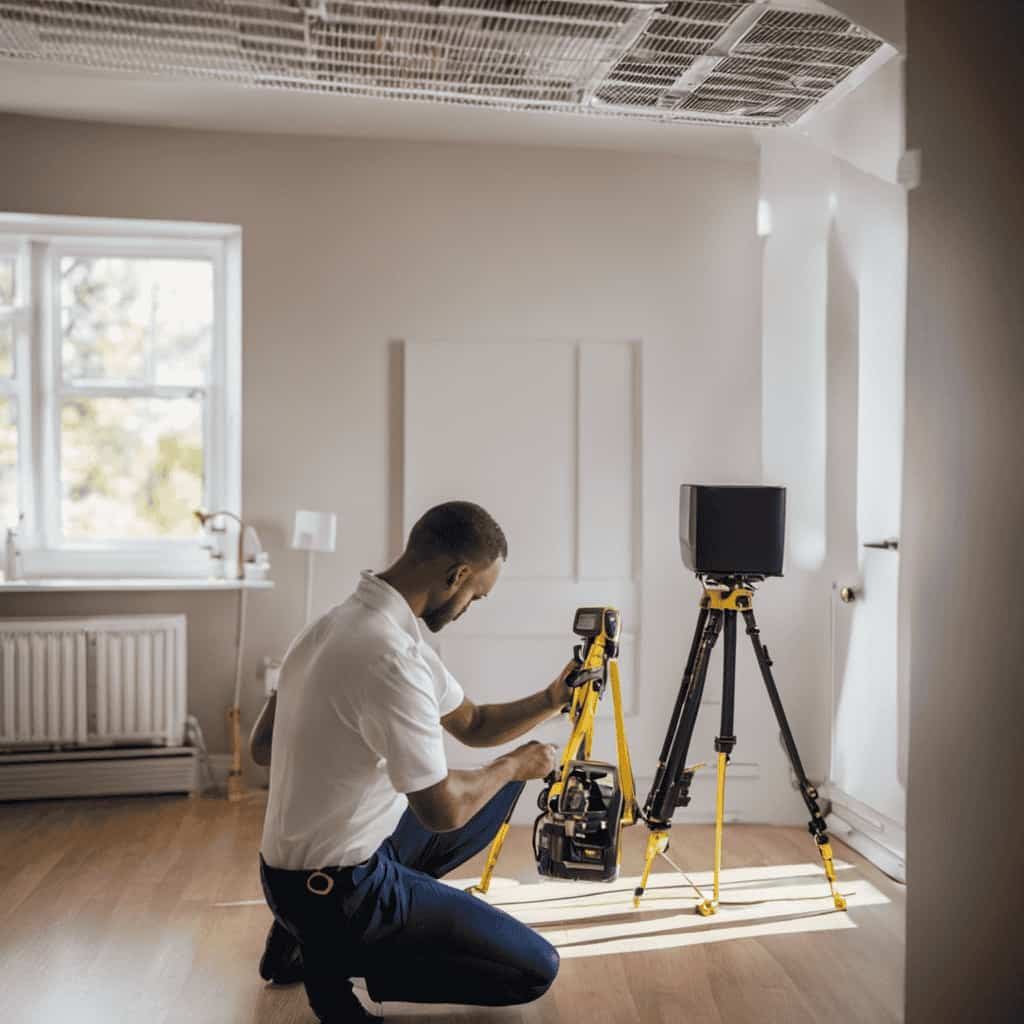
-
Carbon Emissions: Heat pumps produce fewer carbon emissions compared to other heating systems. As they rely on electricity rather than fossil fuels, heat pumps have the potential to significantly lower carbon footprints and contribute to a greener environment.
-
Renewable Energy Integration: Heat pumps can be integrated with renewable energy sources such as solar panels or wind turbines. This combination further reduces reliance on non-renewable energy and promotes sustainability.
Common Issues and Troubleshooting for Heat Pumps
When it comes to heat pumps, there are a few common issues that homeowners may encounter.
One of these is a heat pump not working properly, which can be caused by a variety of factors such as faulty components or electrical issues.
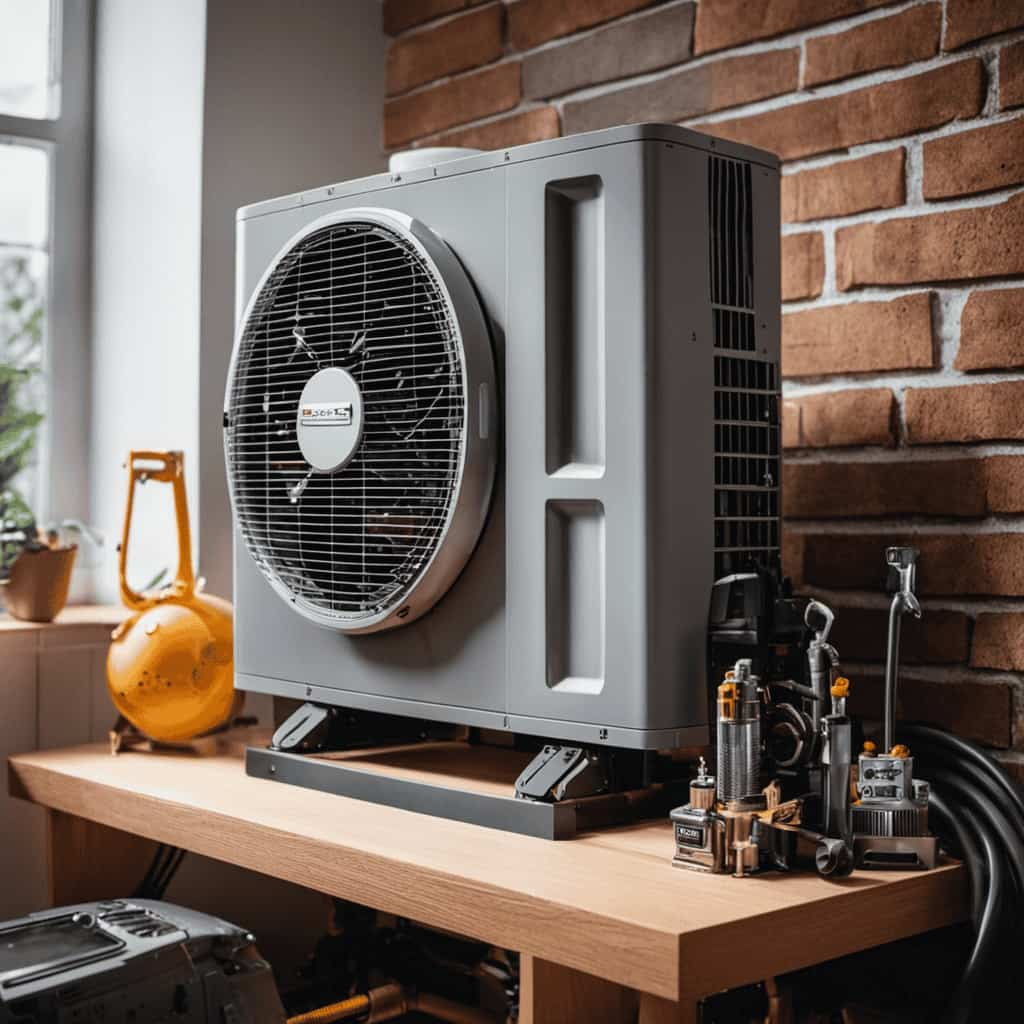
Another common issue is poor heat distribution, where certain areas of the home may not receive adequate heating.
Troubleshooting these problems often involves checking the thermostat settings, inspecting the filters, and ensuring proper airflow throughout the system.
Heat Pump Not Working
If your heat pump isn’t working, there are several common issues that may be causing the problem. Here are some troubleshooting tips to help you identify and possibly resolve the issue:
-
Check the thermostat settings: Ensure that the thermostat is set to the desired temperature and mode (heating or cooling). Adjust the settings if necessary.
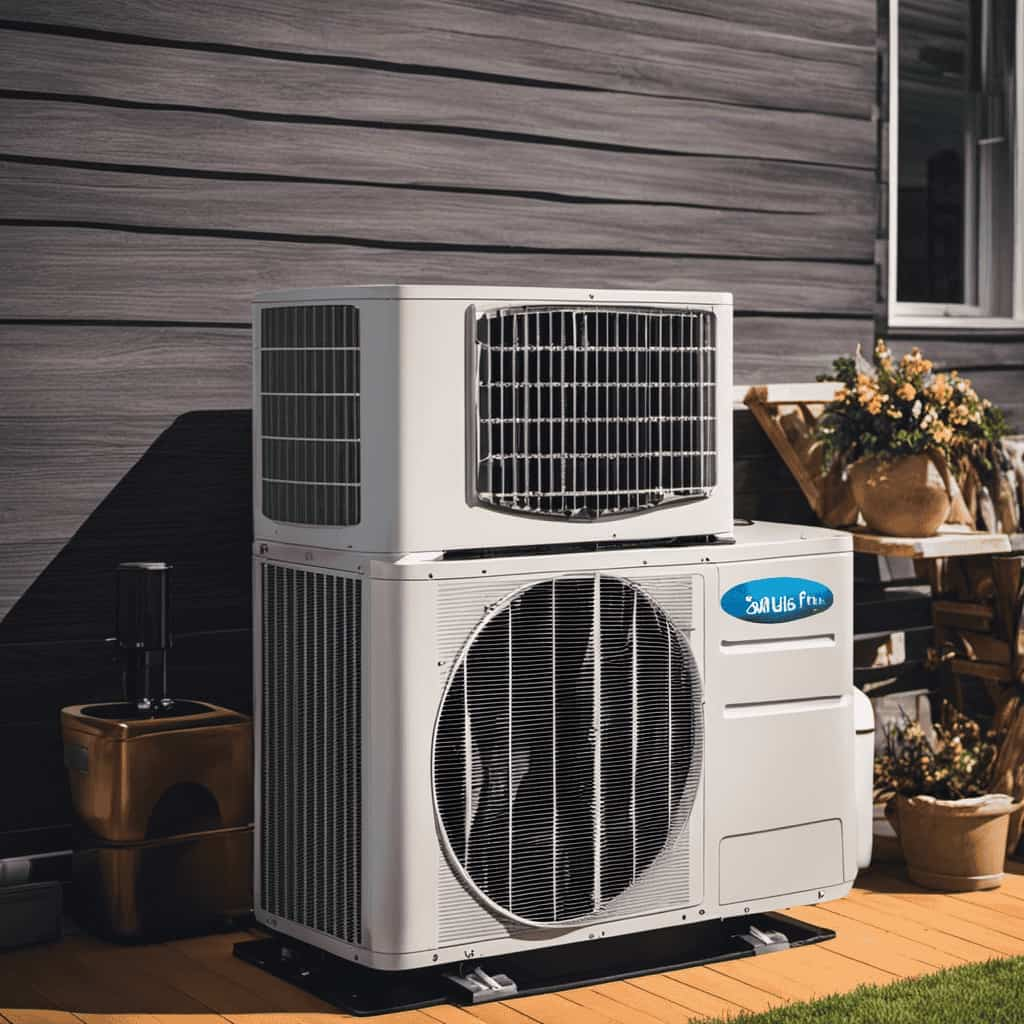
-
Inspect the air filters: Dirty or clogged air filters can restrict airflow and reduce the efficiency of your heat pump. Clean or replace the filters regularly to maintain optimal performance.
-
Examine the outdoor unit: Make sure the outdoor unit is free from debris, such as leaves or dirt. Additionally, check if the fan is spinning properly and the coils are clean.
If these troubleshooting tips don’t resolve the issue, it may be necessary to seek professional repairs. A qualified technician can diagnose and fix any complex problems with your heat pump, ensuring that it operates efficiently and effectively.
Poor Heat Distribution
To ensure optimal heat distribution throughout your home, it’s important to address common issues such as inadequate airflow and improper thermostat settings. Poor heat distribution can result in certain areas of your home being too cold or too hot, leading to discomfort and energy waste.

One common cause of poor heat distribution is improper insulation. Insufficient insulation in walls, floors, and ceilings can allow heat to escape, causing uneven temperatures. To improve insulation, consider adding insulation materials to these areas.
Another common issue is suboptimal airflow. Blocked or closed vents can restrict the flow of heated air, leading to uneven distribution. To optimize airflow, make sure all vents are open and unobstructed.
Additionally, check your thermostat settings to ensure they’re correctly calibrated and programmed for efficient heat distribution.
Heat Pump Vs Traditional HVAC Systems
Our research shows that heat pumps offer significant energy savings compared to traditional HVAC systems.
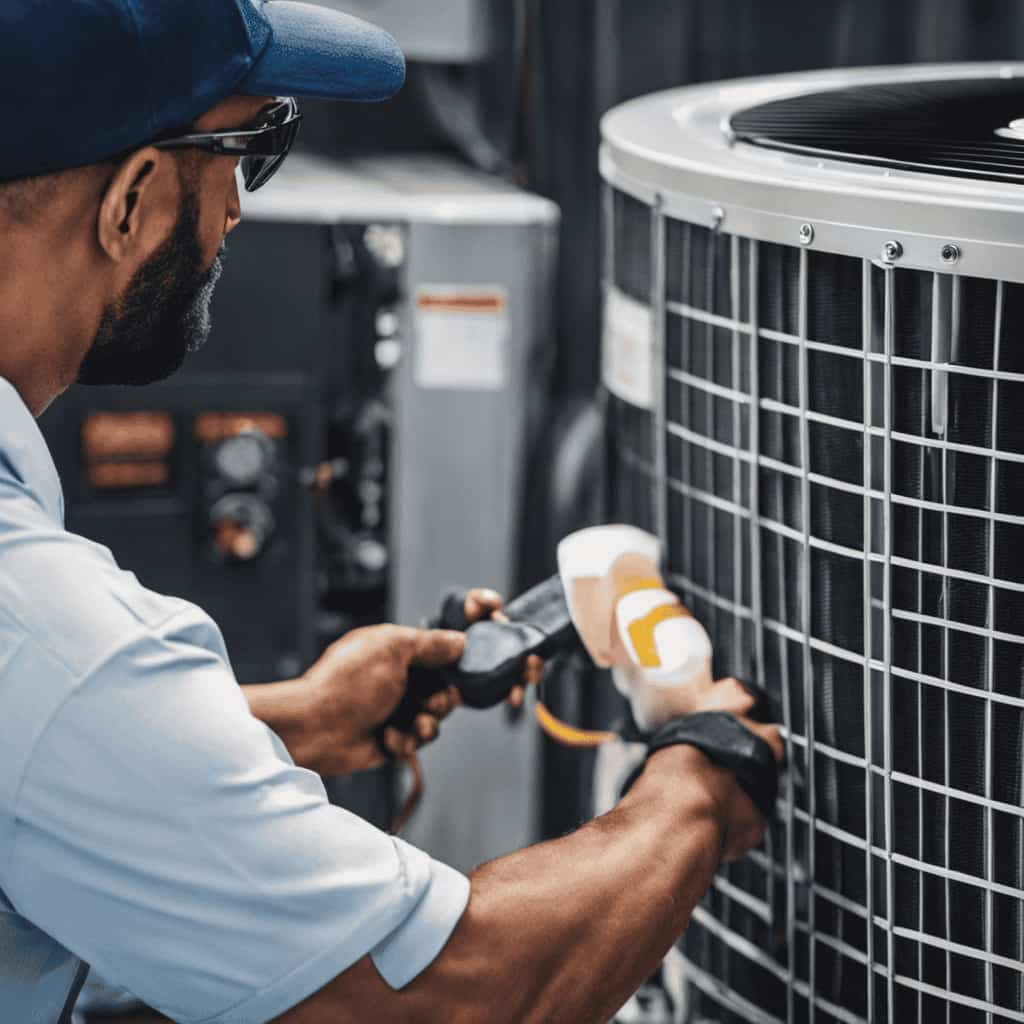
When it comes to heating and cooling your home, heat pumps provide several benefits over traditional HVAC systems. Here are three key advantages of heat pumps:
-
Energy Efficiency: Heat pumps use electricity to transfer heat from the air or ground, rather than generating heat directly. This process consumes less energy, resulting in lower energy bills and reduced carbon emissions.
-
Versatility: Heat pumps can both heat and cool your home, eliminating the need for separate heating and cooling systems. This versatility allows for year-round comfort and convenience.
-
Installation Flexibility: Heat pumps can be installed in various settings, such as homes, offices, and commercial buildings. They can be easily retrofitted into existing HVAC systems, making the installation process simpler and more cost-effective.
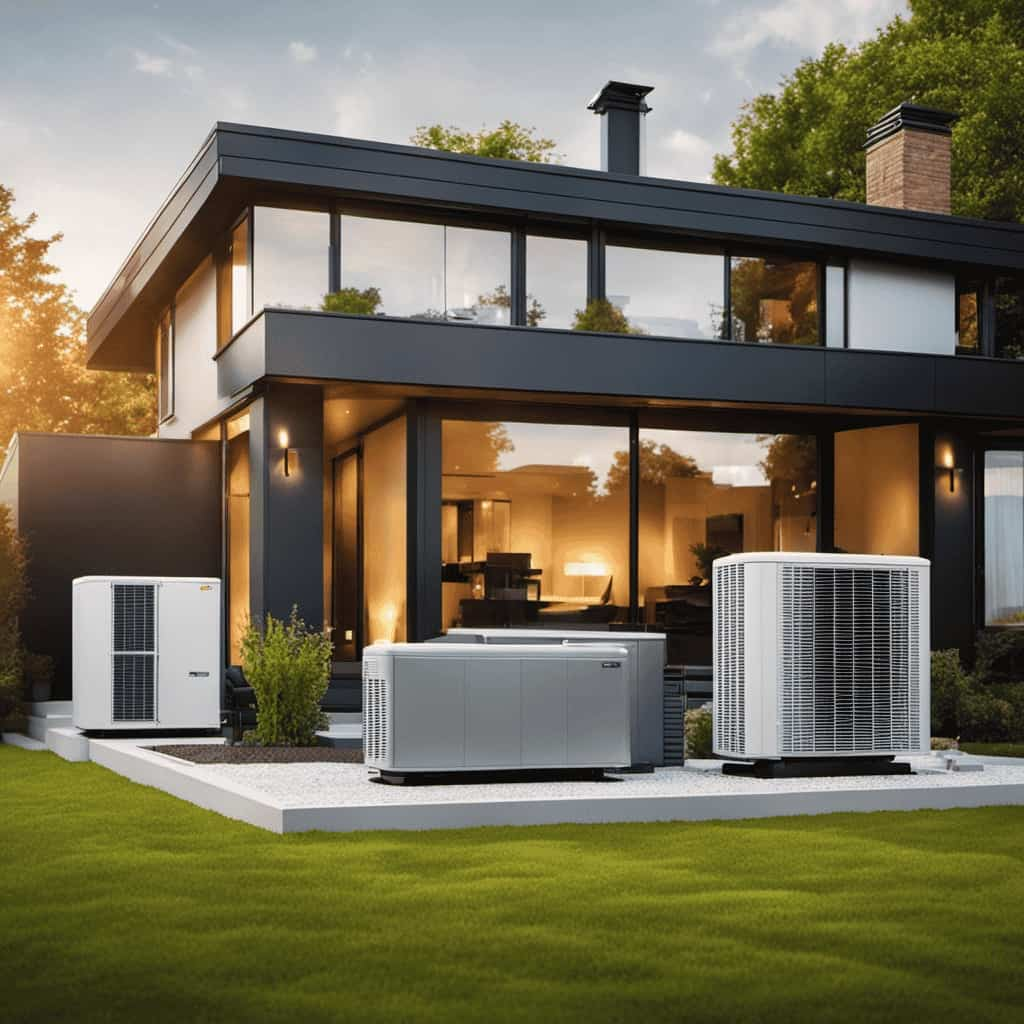
Future Innovations in Heat Pump Technology
As we look ahead, advancements in heat pump technology are expected to revolutionize energy efficiency in the coming years.
Future advancements in heat pump technology will focus on the development of smart heat pumps. These intelligent devices will incorporate sophisticated algorithms and sensors to optimize their performance and increase energy savings even further.
Smart heat pumps will be able to adapt to changing weather conditions, occupancy patterns, and energy prices in real-time, ensuring that they operate at the highest possible efficiency at all times.
Additionally, these heat pumps will have advanced communication capabilities, allowing them to integrate with other smart home devices and energy management systems. This integration will enable homeowners to have complete control over their heat pump’s settings and monitor its performance remotely, leading to even greater energy savings.

With these future innovations, heat pumps will continue to be at the forefront of energy-efficient heating and cooling technology.
Frequently Asked Questions
Are Heat Pumps Suitable for All Types of Homes?
Heat pumps have both pros and cons for different home types. They are cost-effective for various house sizes. However, suitability depends on factors such as insulation, climate, and existing heating systems.
Can Heat Pumps Be Used for Both Heating and Cooling Purposes?
Yes, heat pumps can be used for both heating and cooling purposes. They offer several advantages, including energy efficiency. By using the same system for both functions, homeowners can save on energy consumption and costs.
How Long Do Heat Pumps Typically Last?
Heat pump lifespan and durability are important factors to consider. They typically last around 15-20 years with proper maintenance. Regular servicing and timely repairs can extend their lifespan, ensuring efficient heating and cooling for your home.

Do Heat Pumps Require Regular Servicing or Maintenance?
Regular servicing and maintenance are essential for the optimal performance of heat pumps. Neglecting these requirements can lead to decreased efficiency and potential breakdowns. It is important to schedule regular maintenance to ensure the longevity and efficiency of your heat pump system.
What Are the Potential Drawbacks or Limitations of Using a Heat Pump?
Potential drawbacks and limitations of heat pumps include lower efficiency in extreme temperatures and higher installation costs compared to traditional heating systems. However, they still offer significant energy savings and environmental benefits.
Conclusion
In conclusion, heat pumps are a highly efficient and environmentally friendly option for heating and cooling your home. With the ability to save up to 60% on energy compared to traditional HVAC systems, heat pumps are a wise investment.
By providing both cooling and heating capabilities, they offer year-round comfort. With various types to choose from and an easy installation process, finding the right heat pump for your home is simple.
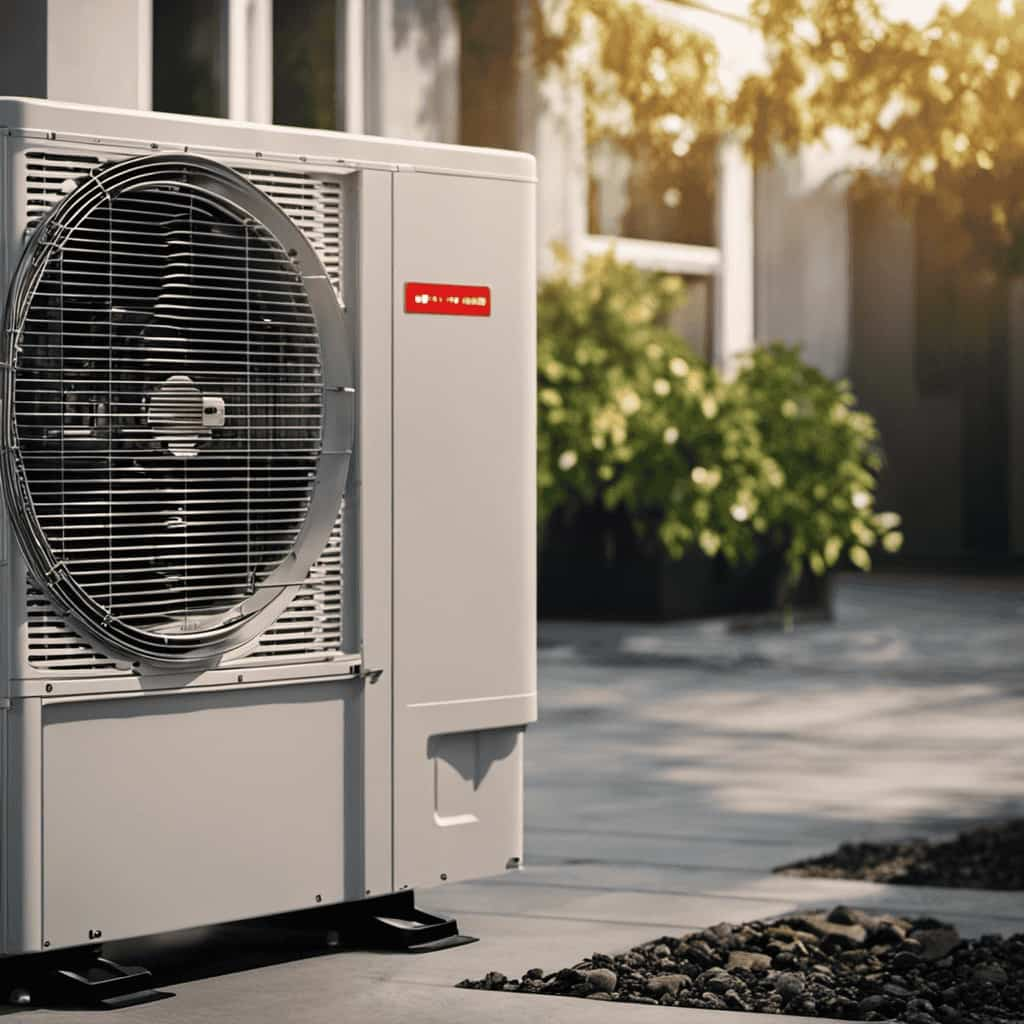
So why settle for old, inefficient systems when you can embrace the future of heating and cooling?
